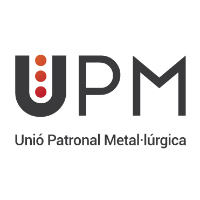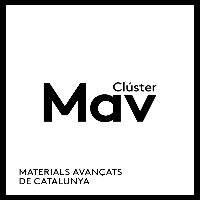“Catalonia is a driving force of the metal sector, accounting for 17.6% of turnover in Spain, with metallurgy being among the top 5 sectors in the region”
Metallurgy industry in Catalonia
Catalonia's metallurgy industry comprises 4,766 companies, with a turnover of €12,262.2 M and 64,400 people employed.

Catalonia’s metallurgy industry, a solid part of its economy.
The metallurgy industry is one of Catalonia’s most important sectors, contributing significantly to its economic growth and job creation. The industry comprises 4,766 companies, with a turnover of €12,262.2 M and 64,400 people employed.
A young, growing, and flexible sector
Out of the 4,766 companies in the metallurgy sector in Catalonia, 80.2% are less than ten years old, and 86.4% are SMEs. These companies account for 20% of the total number of companies in Spain in these sectors. The province of Barcelona concentrates most of the companies in the industry, with 82.0% of the total turnover, followed by Girona, Tarragona, and Lleida.
Search our directory to find Catalan suppliers in the metallurgy sector.
In 2021, employment in the metallurgy and metal products sector increased by 1.1% and 0.8% in Catalonia, respectively. This accounts for 18% of total employment in the sector in Spain. Furthermore, the metallurgy and metal products sectors combined account for 9.2% of industrial GVA in Catalonia. It is among the top 5 sectors in Catalonia, along with chemicals and plastics, food and beverages, automotive, and life sciences. Turnover in Catalonia and Spain stands at €12,262 M and €69,841 M, respectively, making Catalonia the driving force of the metal sector, accounting for 17.6% of turnover in Spain. Moreover, Catalonia has a higher annual growth rate than Spain in metal production.
Emerging industries driving innovation and growth in Catalonia
Additive manufacturing or 3D printing is used to manufacture volumetric objects sequentially. It is used to produce parts with complex geometries faster and more flexibly. At the same time, it also generates less waste than subtractive manufacturing and can work with different types of metal. Another significant emerging sector in Catalonia is advanced metal materials, used as structural materials, for high-temperature applications to produce energy, and as coatings to modify properties related to wear and corrosion resistance.
And as regards sustainability, the replacement of coal with hydrogen in iron oxide reduction processes to produce steel is helping to reduce carbon dioxide emissions and decarbonize this industry. Furthermore, incorporating renewable clean energies to replace the burning of fossil fuels is also helping decarbonize the steel and aluminum industry, making the process more environmentally friendly.
-

4,766 companies
-

€12,262.2M turnover
-

64,400 employees
An internationalized industry
Over the past decade, 17% of Spanish exports from the metallurgy sector have come from Catalonia. During the five years from 2017 to 2021, Catalan exports grew by 21% and 17% during the past ten years. The primary iron and steel product manufacturing subsector was the most exporting group in 2021, with 21%, 18% in non-ferrous and precious metals, and 14% in other metal products. Lastly, Catalonia firms lead the ranking of regular metallurgy products exporters with 64% of regular exporters among the total number of exporting companies. The main countries exported to are the UK, Portugal, Italy, France, and Germany, while imports primarily come from Italy, Germany, France, China, and Turkey.
A healthy investment panorama
Recent foreign investments in Catalonia have come from Oryx Stainless España, Pathel Industrie, Fischer Ibérica, Kadimi Special Steels, and PXI Auto Components Suzhou. Of particular significance are the investments made by PXI and Oryx. With a €25.5 M of investment, PXI opened a new production center in Sant Pere de Torelló (Barcelona), creating 78 jobs, while Oryx opened a new plant in Vilanova i la Geltrú (Barcelona), investing €49.3 M and creating 122 jobs.
Powering the industry with education
In Catalonia, nine universities offer 6 degrees in engineering, ranging from mechanical, material, industrial design, industrial technologies, and industrial organization, as well as electronic, industrial, and automation engineering. Furthermore, advanced education exists in automation, robotics, mechatronics, and electrotechnical and automated systems.
Catalonia, always open to innovation and progress.
According to the European Commission’s Cultural and Creative Cities Monitor, in 2020, Barcelona was the 5th city in Europe regarding creative and knowledge-based jobs. 15% of the Catalan population are resident foreigners, so it is no surprise that Barcelona is the world’s ninth favorite city in which to work for foreigners, after London, Amsterdam, Dubai, Berlin, Abu Dhabi, Tokyo, Singapore, and New York.

Metallurgy sector in Catalonia
Access our report on the Metallurgy sector in Catalonia and see the latest trends in the industry.
Discover other sectors.
Related news & success stories in Barcelona (Catalonia).
-
28 Nov 2025
See more Daren Tang, Director General of WIPO: "Barcelona’s innovation model works like an orchestra"Daren Tang, Director General of WIPO: "Barcelona’s innovation model works like an orchestra"
-
10 Sep 2025
See more Success Story: Why IFCO chose Barcelona for its Digital HubSuccess Story: Why IFCO chose Barcelona for its Digital Hub
-
14 Mar 2025
See more One day with Dai Nippon Printing at MWC BarcelonaOne day with Dai Nippon Printing at MWC Barcelona
-
20 Feb 2025
See more Success Case: Tech giant Oracle expands in Barcelona with a new European Health HubSuccess Case: Tech giant Oracle expands in Barcelona with a new European Health Hub





